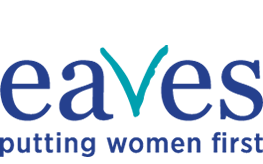- Who we are
-
Our projects
- Research and Development
- Eaves' Poppy Project - for survivors of trafficking
- Amina - for survivors of sexual violence
- Independent Sexual Violence Advocate - for survivors of abuse
- Life Skills - for women facing homelessness
- The Beth Centre
- London Exiting Advocacy - for women seeking to exit prostitution
- Join the team
- Governance
- Contact us
Eaves' Poppy Project
Jasmin's story
This short film tells the story of a Jasmin, a Ghanian woman who was trafficked into the UK for sexual exploitation…
More case studiesGet involvedThe Poppy Project was set up in 2003 to provide high-quality support, advocacy and accommodation to trafficked women; that is, women who have been brought into England or Wales to be exploited in some way. This could include but is not limited to sexual exploitation, labour exploitation, forced illicit activities and organ harvesting.
Support workers work with women to create individual support plans for them, which can include financial help, support accessing health services and treatment, specialist counselling, criminal and immigration-related legal advice, education and employment opportunities and other support as needed.
To make a referral, call 020 7735 2062 and ask to speak to the Poppy Project duty worker.
Our services
We have nine bed spaces for women who need accommodation as part of their support, and can work on an outreach basis with women who don’t need accommodation.
Our workers are all experts in supporting trafficked women, and within the team we also have the following expertise:
- A Young Women’s worker, who specialises in supporting trafficked women between 16-24 years old;
- A Family Reunification worker, who specialises in working with trafficked women who have children; and
- A Detention Centres and Prisons worker, who can provide advocacy and support to women in those hard-to-reach situations.
The Poppy Project can accept women who are over 16 years of age and were trafficked into the UK, into the following areas of exploitation:
- Prostitution and/or sexual exploitation;
- Forced labour, including domestic servitude;
- Forced illicit activities, such as cannabis farming, begging or pick pocketing; or
- Organ harvesting.
What is trafficking?
‘Trafficking’ is the movement of a person from one place to another for the purposes of exploitation. Women may have been forced, coerced or deceived into coming, or may have come willingly but been deceived about the nature or conditions of work they would experience on their arrival.
Victims of trafficking are often subject to high levels of physical, sexual and psychological violence. For this reason, and because they may be afraid of the police, it may take women time to disclose the full extent of their experiences.
Women do not have to have entered the country illegally to have been trafficked; however, they may have done so either knowingly or without their knowledge. They may also have had their passport or other forms of identification taken from them.
Poppy receives funding from London Councils.
Contact the Poppy Project
Call to make a referral
020 7735 2062
How you can help Get inspired with fundraising ideas or join one of our fundraising events...
Join our campaigns Visit the Campaigns section to find out more...
Sign up for our newsletter Stay up to date with our supporters, campaigns and consultations...
Our success stories
Sylvia, 47 from Uganda
30th July 2014
My name is Sylvia and I used to work as a school teacher in Uganda.* For over 14 years my husband abused me. … read more
Ada, 25 from Sierra Leone
3rd May 2012
Ada* says… “Life in Sierra Leone was difficult. My father beat me a lot when I was growing up and yelled … read more



